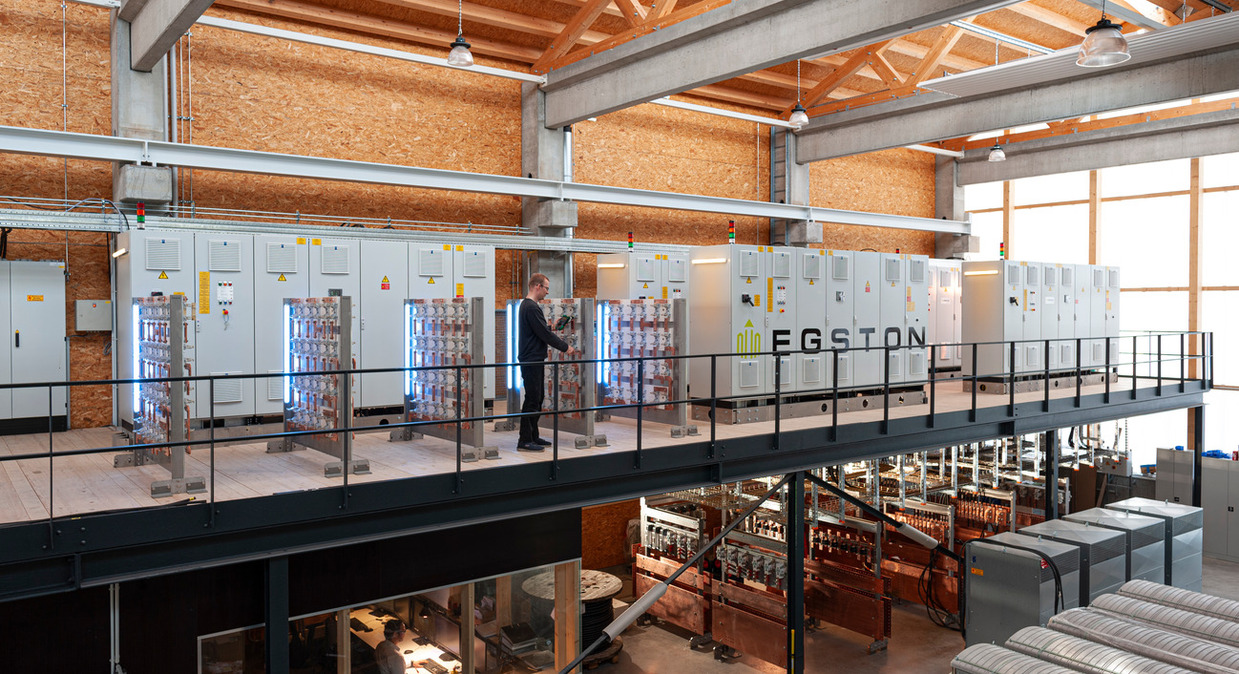Real-time systems for energy technologies

The research group investigates the system integration and regulation of new technologies in real time under realistic power grid conditions and with real power devices. The Power-Hardware-in-the-Loop (PHIL) laboratory combines the high accuracy of experimental results with the high flexibility of laboratory operation and simulation. With a maximum power of 1 MW and a voltage of up to 1.5 kV, large-scale test series for different operating situations can be performed reliably and verifiably.
The resulting reduction in time-to-market makes the research facility interesting for researchers, manufacturers and grid operators who develop, analyze and test future energy systems.
Research focus
- Power-Hardware-in-the-Loop: How to enable stable and accurate evaluation of technologies under realistic conditions?
- Energy storage systems: What grid services can different storage systems provide and which technologies are best suited to solve specific problems (e.g. primary frequency control)?
- Superconducting power components: Which superconducting power components are optimal for practical applications in terms of their thermal, electrical and mechanical properties and how can they be modeled?
Test systems and energy technologies
at the Power-Hardware-in-the-Loop laboratory:
- 1 MVA-Egston power amplifier
- 3 linear amplifiers up to 45 kW power
- 1 DC emulator with up to 250 kW power and up to 1 kV DC voltage
- Digital real-time simulators of thousands of network nodes (time interval < 50 μs)
- 120 kW high-speed flywheel memory
- 500 kW supercapacitor energy storage system
- 3.5 kW (electrical) and 15 kW (thermal) micro gas turbine
- 50 kW hydrogen storage power plant ( expected to open in 2024)
The Power-Hardware-in-the-Loop laboratory is a central component of the infrastructure of the Smart Energy System Simulation and Control Center (SEnSSiCC), embedded in the Energy Lab project framework.
